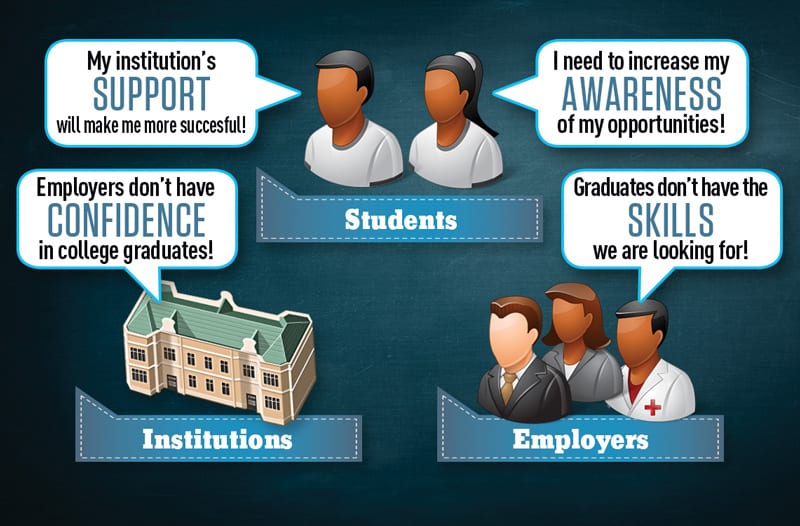The Challenge: The Broken College-Career Pipeline
In the highly-competitive global economy, a college education has become a fundamental requirement for employment in the economy’s fastest-growing and best-paying jobs and career paths. According to the Georgetown Center on Education and the Workforce, “Over 95 percent of jobs created during the recovery have gone to college-educated workers” and “by 2020, 65 percent of all jobs in the economy will require postsecondary education and training beyond high school.” A college graduate with a bachelor’s degree makes on average about one million dollars more in a lifetime than a worker with only a high school diploma.

But despite the advantages of producing more college graduates, the U.S. continues to fall short. According to the Census Bureau, 32.5 percent of the population 25 and older has a bachelor’s degree or more, compared to just 22.5 percent for African Americans. The employment gap isn’t just a concern for African American non-graduates. According to the Center for Economic and Policy Research, while only 5.6 percent of all college graduates ages 22 to 27 were unemployed, more than twice as many black college graduates (12.4%) were unemployed. And of the African Americans who were employed, 55.9 percent were underemployed or working in careers that do not require the degree they hold.
The Response: The UNCF® Career Pathways Initiative
The UNCF® Career Pathways Initiative is a seven-year, grant-funded pilot program designed to enhance selected institutions’ capacity to help their students find meaningful employment in their desired career fields. CPI will be led by UNCF’s pioneering institutional improvement initiative, the Institute for Capacity Building.
CPI aims to improve the ability of educational institutions to serve their two primary stakeholders: students who rely on these institutions to prepare them for life after graduation, and employers who look to them for well-prepared college graduates. To simultaneously serve both students and employers, institutions must deepen their support for students by:
- More intentionally integrating their education and career preparation through stronger internships, more effective experiential learning opportunities, career counseling and other activities
- Increasing their awareness of professional job market requirements
- Reconsidering the knowledge 21st century students need in the workforce of tomorrow